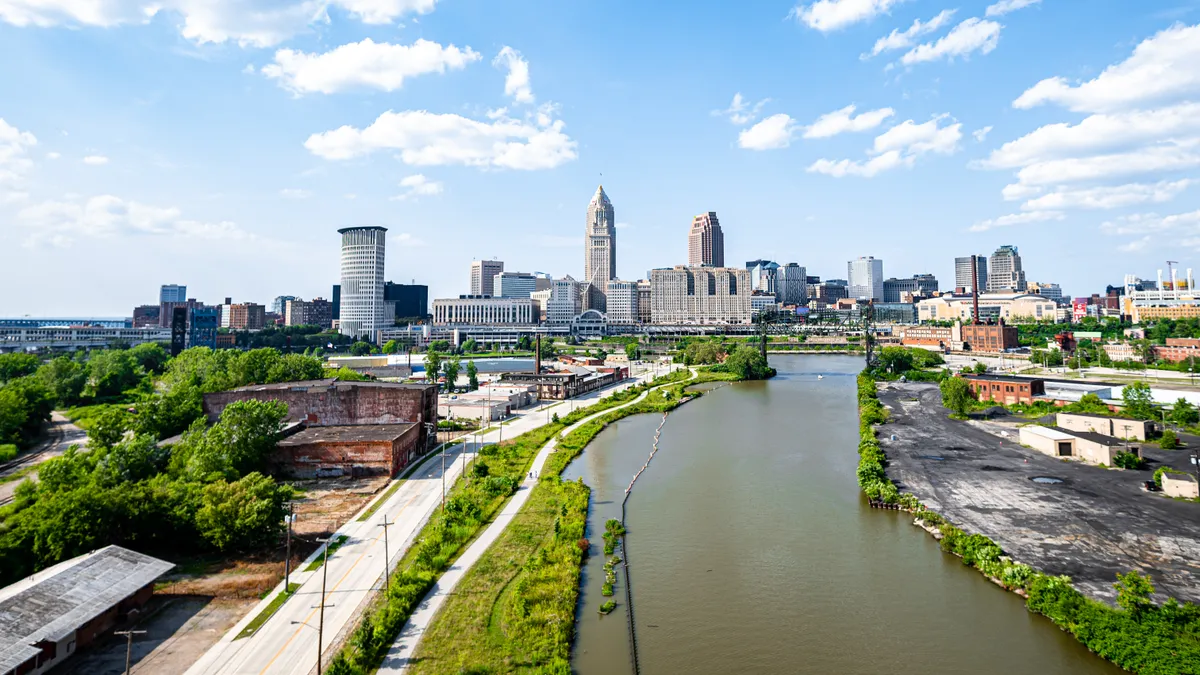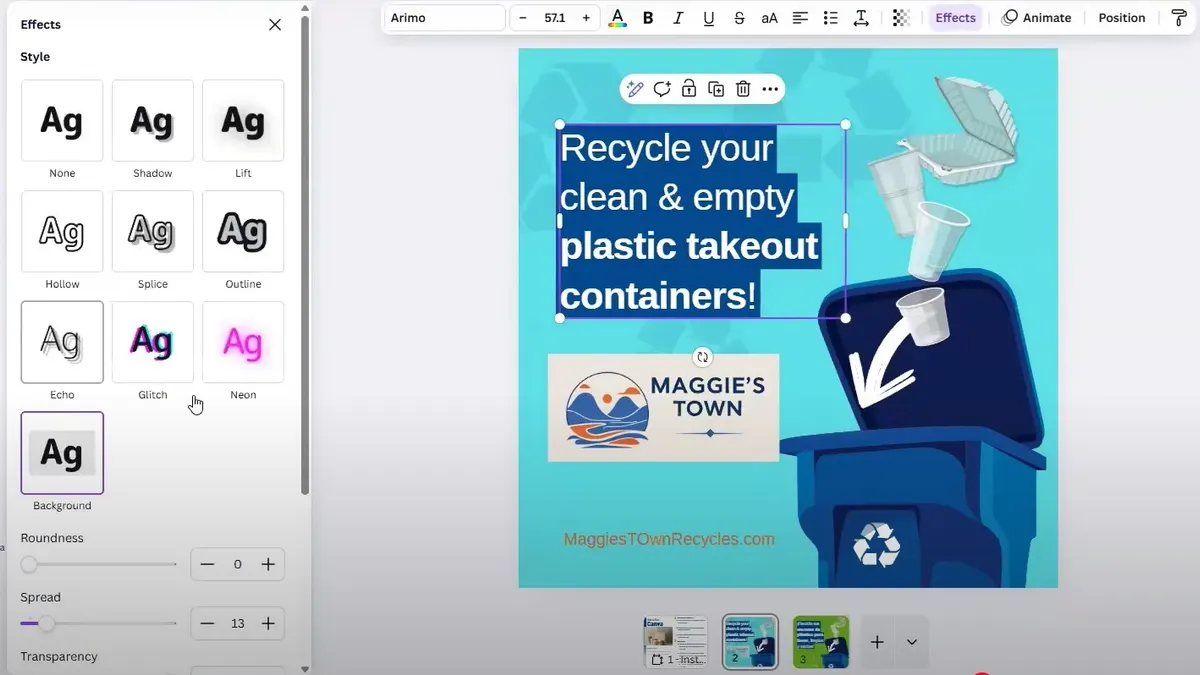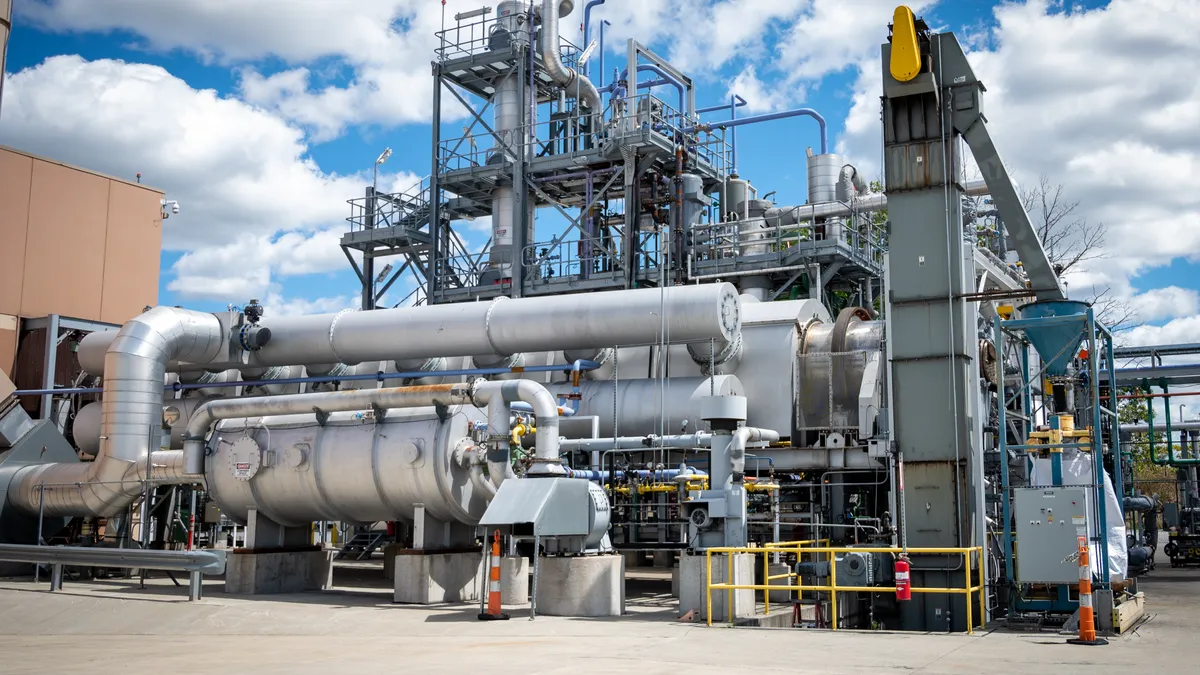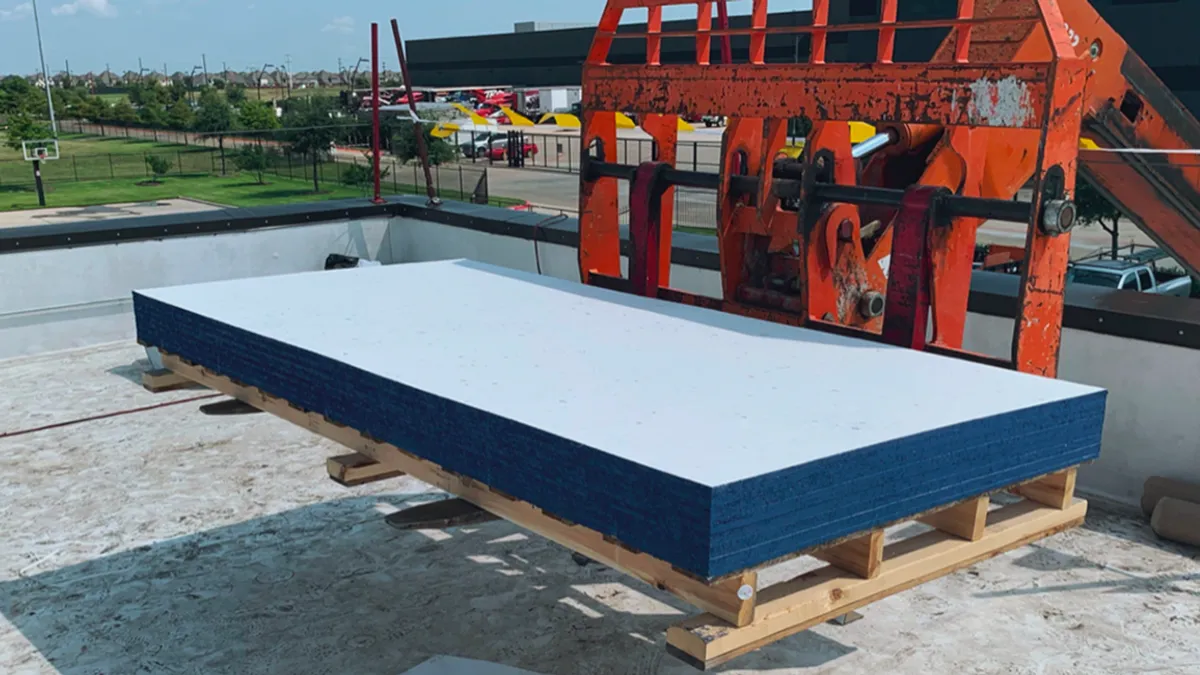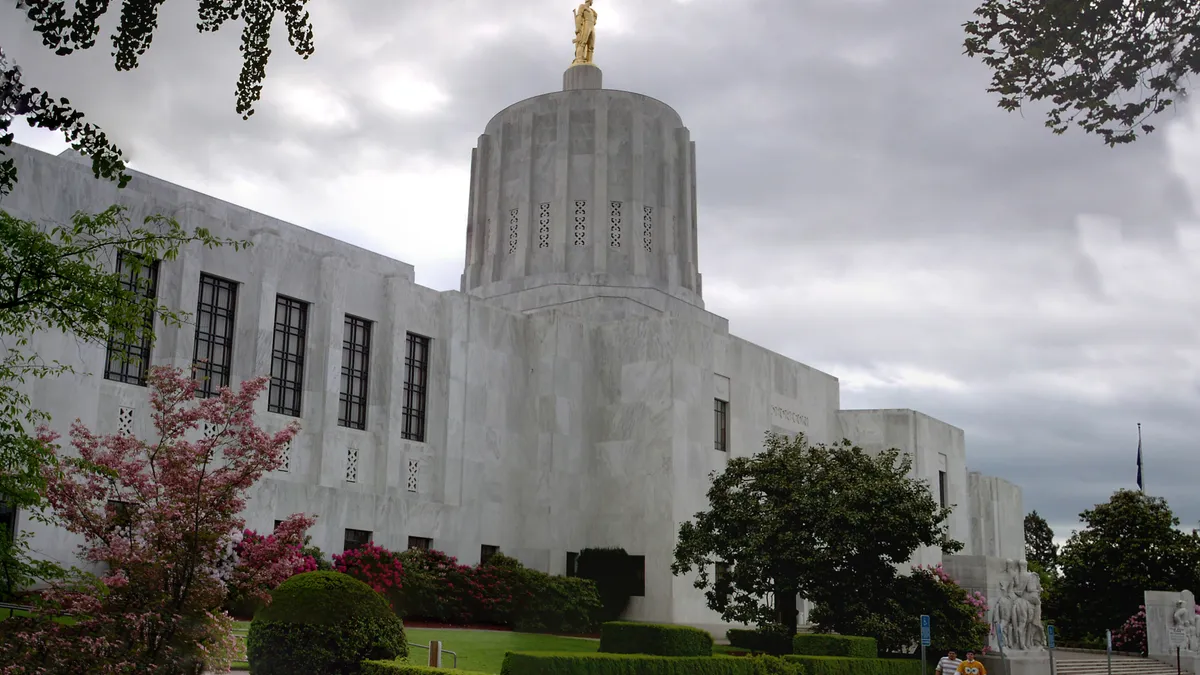Cleveland residents have waited more than two years for curbside recycling service to return, and city leaders hope the strategy in place this time working with Ohio-based Rumpke Waste & Recycling will boost quality participation and slash contamination.
After the city’s contract with Kimble Recycling & Disposal ran out in spring of 2020, recyclables were landfilled and the city struggled to attract good bidders for a new contract, which was attributed to a history of high contamination. The city’s journey to restoring curbside recycling service has been longer than expected as it’s sorted out the best model and repeated the bidding process. The city decided last year to pursue an opt-in model, and added a recycling coordinator to its staff for the first time: Ren Brumfield, who previously worked in waste management for large health systems in Cleveland.
One of Brumfield’s top tasks was negotiating that elusive recycling contract, which was announced on Earth Day: a five-year agreement with Rumpke. The program begins Monday. The city is hoping that some key changes will make this iteration of curbside recycling more of a success, including greater transparency and grassroots engagement with residents, as well as regular contamination audits.
When Brumfield spoke with Waste Dive about a week and a half ahead of the start date, there had been some 32,000 signups to participate in the program, out of a possible 150,000 households, he said. The current enrollment period is open through July 31.
This interview has been edited for clarity and brevity.
Are there metrics related to number of signups, volumes collected, contamination, etc. by which you plan to measure success at the beginning?
We're gonna measure all those things. And as far as goals for those ... we were at [approximately] 62% contamination at our worst a couple of years ago. So I think a quick goal for contamination is to be under 30%. And eventually, I want to get better than that.
So what I really want to do, since we've been out of this for two years, is make sure that we know which metrics we're going to track. And that's going to be the contamination rate. It's going to the total volume of waste so we can get our recycling grade. It’s gonna be [what is] the contamination, what things are we finding in there? Because that's gonna influence how we reach back out to the residents.
And one big part about this program is that we're trying to make sure that we capture contact information, whether it's an email [or phone], so that we can really make it more personal and talk with the residents. And we'll have a website that goes along with our recycling [that will] share a lot of those metrics: How much are we recycling? How well are we recycling? What can we do better? What are we doing really well?
I want to make sure that the public gets a lot of feedback from me, because in the past Cleveland never had a recycling coordinator — I get to be the first one of those. So I want to make sure that, being in that position, I am that person that's right there that's in contact with all the information and also in contact with the residents. I really want to be that conduit, that place where all the information comes from, where the information is channeled from the city to the residents. I want them to be on board so that they can actually [do a better job] this time and understand what's going on.
Are there any local factors, specific to Cleveland and its people, that you think play into the most effective ways to do outreach?
One of the big things that’s affecting how we handle this and how I talk to people here in Cleveland is the fact that, for the last two years, people have still had the blue recycling carts, but [most people] have known that the city is not recycling. So for two years, this has been an extra trash can.
I need to make sure that we get the word out to everyone: that we use all the venues that we have, that we work through the council people, through community organizations, [and through the county and neighborhood ambassadors]...
So I'm trying to make sure that I use networks that are existing, that I use local resources, people that are in the neighborhoods that are trying to do good things in the community … and to work with them, instead of “here’s that new guy from the city asking me to do a thing.” To make it more of a grassroots effort to give people more input and more buy-in with the process, I need them to be more personally connected. It's about building those kinds of networks; that's what's gonna make it most effective.
Are there specific challenges or opportunities that you see — given the fact that there's been such a long downtime — in terms of doing a complete refresh of recycling education and communication?
One of the things that I really want to push about what Cleveland has the opportunity to do right now, is that this is a complete reset. This is a brand new thing ... We could be at the forefront of how cities recycle in the nation because we're having such a complete restart.
A lot of people are going on the old instructions they've had for recycling, where it's, you know, [plastics No. 1-7] and all kinds of other random instructions that lead them to [wishcycle.]
One of the things I’m doing to address that challenge is to emphasize [what we] recycle as opposed to what is recyclable, so that they know ‘this is what we can put in our bin.’ And regardless of whether some other city does this thing differently, or you used to be able to do this, or ‘oh this has a symbol on the bottom, why can't I do it’ – it's an emphasis on ‘these are the things that when you put them in the bin, they will actually get processed.’ So you're not just throwing away your effort, you're actually doing a good productive thing. I want people to understand that process and that truth that it’s not just whatever you can throw in can get processed and somebody will figure it out. It's: here's what we can do, please put just this in.
So that's a big part of what I see as my mandate: to simplify and make people understand what it is we're doing so that they know it can be easy going forward.
Regarding communications and outreach, are there any new strategies that you’re employing, or are you combining things that have worked elsewhere or in the past?
What I’m trying to do is to make sure we have a strategy where we're using media, we are on the ground with people talking to people. We sent out a packet with a booklet and a flier and other information to all the residents that were already enrolled in the program. We sent out postcards to the entire city, all the people that were not enrolled, to say ‘here's how the program works, it is an opt-in, you have to be in the program to participate, and here's how you participate.’ And there's no extra costs for our process we have going on, it's just really a matter of: we want people to really acknowledge that they are recycling, to let us know they want to participate with that, so that we can we can be a little bit cleaner, because theoretically, the people that are in the program would be voluntarily into the program and would actually try to follow the rules. So it's a matter of just all those strategies at the same time.
Can you talk a little bit more about contract negotiations and how this new contract is different than what Cleveland had in place before?
A big part of the whole contracting wasn't necessarily just the cost, it was: What does that vendor accept? What is considered contamination? What are their fees when things are contaminated? What methods do they use to determine all of that? There was a lot of the minutiae of business contracts that needed to be worked out. And that was part of the issue originally when I first got here.
I think in the end the company that we got is the best company. What I'm looking at is they have a much larger list of things that they can accept, that they can process. They have some good stable markets for a lot of that. Glass is not just used as alternative cover at a landfill; it's actually processed into glass things. We can process plastic cups and cartons and plastic cups and paper cups with this company and no one else could.
So it really came out to trying to find what would be the best deal for not just the money, but all the other parts that come to it. How does it get processed? Where does it get processed? How far does it go? And yeah, how much does it cost, and all those things. But there were a lot of factors that had to be considered. And I think that the company that we eventually went with in that second time around of having the bids is really the best one for this restart so that our residents will be able to recycle those things and worry less about contaminating recycling. And really, they can be confident that things are all being processed and not just thrown in the trash or not used in some way that isn't really recycling ... So I think that all of that process and all the time, it actually worked out well for us.
Is there anything else you want to highlight?
[Regarding metrics], you're not gonna see a lot of year-over-year [data] because we're so far removed from when we were actually recycling and it's gonna be a whole different situation because of what is contamination and what is not. So I think a big part early on is gonna be that reporting, that understanding [of] ‘where are we right now?’
We're going to be trying to reach [national averages] and then we're going to try to get a little better than that every year. So we're going to establish that baseline and then I expect to get much better every one of those five years. A lot of people are volunteering to help, wanting to be a part of this new process. So I feel like we're on the right track.



